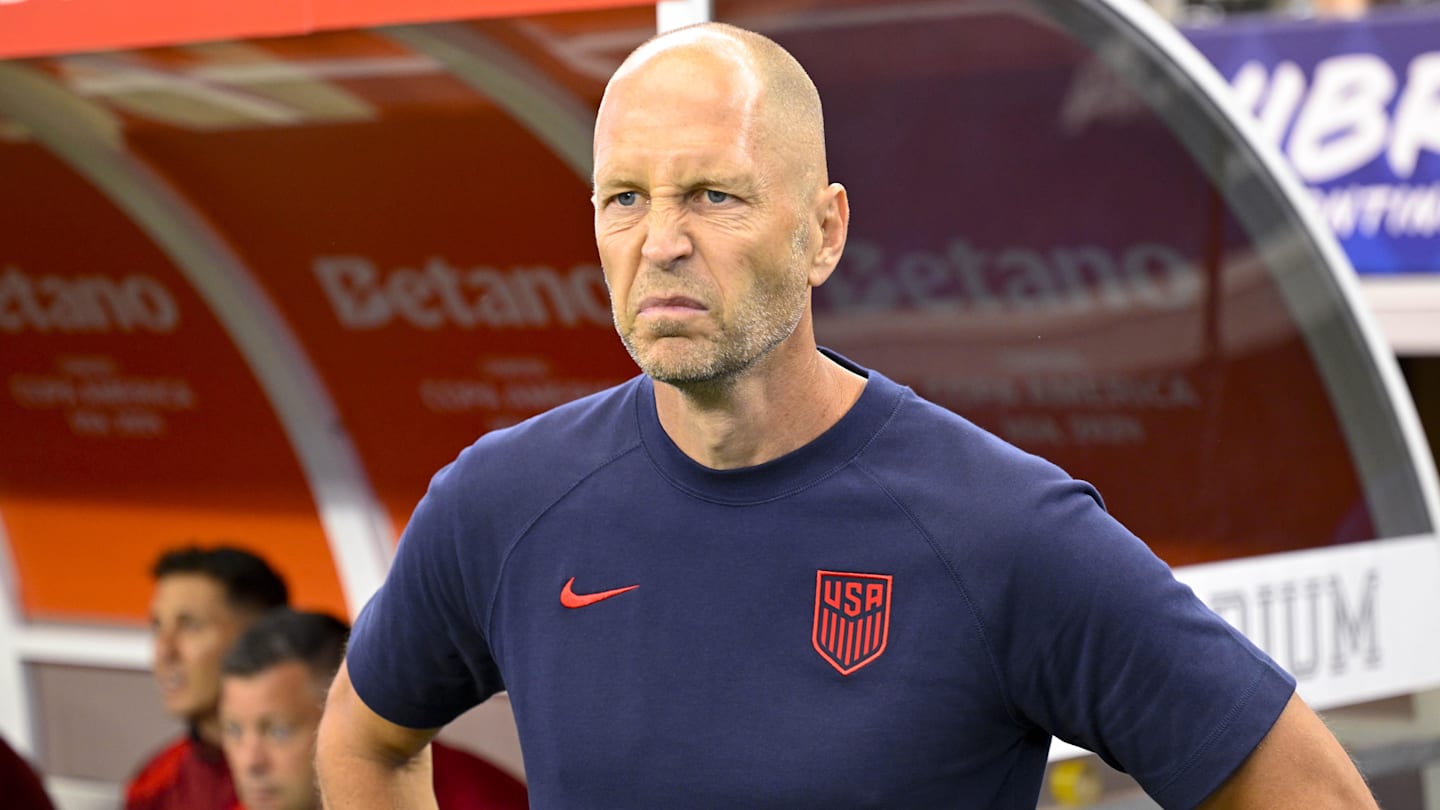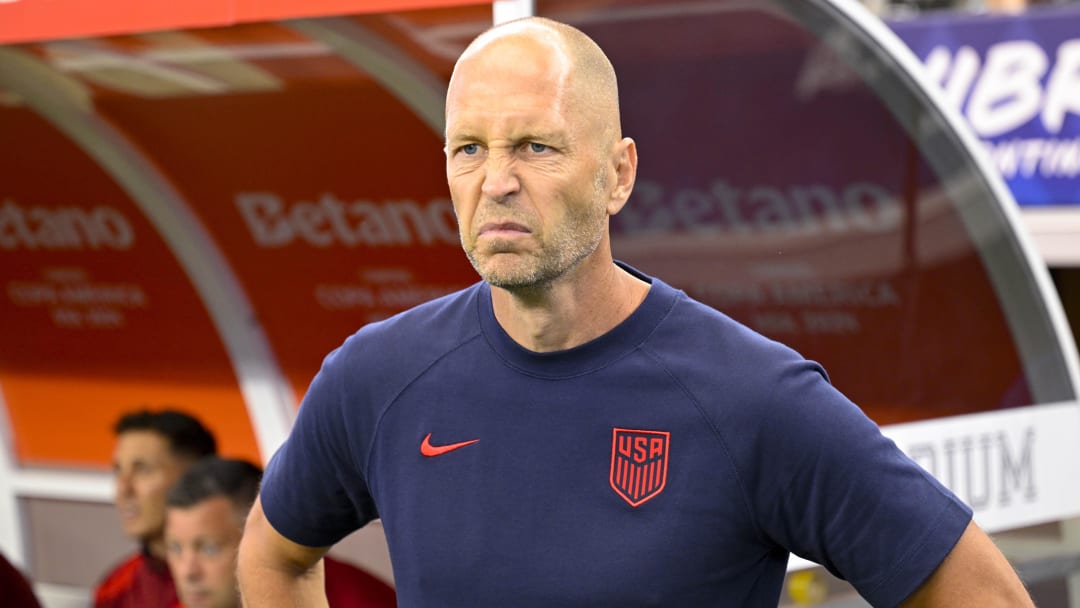Sure, the officiating was terrible as the USMNT crashed out of Copa America. But the way the team lost its composure and wilted offensively was even worse.

www.si.com
It’s Time to Fire Gregg Berhalter
Sure, the officiating was terrible as the USMNT crashed out of Copa America. But the way the team lost its composure and wilted offensively was even worse.
The easiest way to cope with a loss is to blame the ref. The next-easiest is to blame the coach. After its Copa America debacle, the U.S. Soccer Federation must choose between the two. Blaming the refs is tempting. But firing Gregg Berhalter is appropriate.
It is time for Berhalter to go, and this is not just a polite choice of words, like “relieved of his duties” or “parted ways.” Berhalter has held the job for five years through two stints. The U.S. men’s national team is underachieving in ways that reflect directly on leadership. The World Cup is just two years away. It is time.
A national team coach’s primary job is to get the talent to coalesce. The main avenues toward that end are tactical and cultural. At the 2022 World Cup, the U.S. scored just three goals in four games, and at Copa America, the Americans scored only once in their two toughest games, against Uruguay and Panama. But the cultural signs are also concerning.
Berhalter takes considerable pride in his ability to steel his players for competition. After the 2022 World Cup, he boasted of how he almost sent Gio Reyna home for a poor attitude, sparking a series of events that almost cost Berhalter his job. Players support Berhalter staunchly and, no doubt, sincerely; Reyna has been particularly vocal lately. The problem is that this has not translated to competition.
Before the Americans’ second Copa America match, against Panama, Berhalter warned his players about what would happen. Panama would try to make up the talent gap by fouling constantly, and referee Ivan Barton would probably let Panama get away with it. Well, Panama persistently fouled the U.S., and Barton did an egregiously awful job. He lost control of the match. But the Americans
knew that would happen—and they still handled it poorly.
.
.
.
continued
“Our tournament performance fell short of our expectations," U.S. Soccer sporting director Matt Crocker said after the USMNT was eliminated in the group stage of the 2024 Copa America. What that means for coach Gregg Berhalter remains to be seen.

www.foxsports.com
USMNT coach Gregg Berhalter's future uncertain after disastrous Copa América group stage exit
The line of questioning was inevitable. Following the first-ever group stage exit of a Copa América host, ashen-faced U.S. men's national team coach Gregg Berhalter stepped to the podium in the aftermath of Monday's tournament-ending 1-0 loss to Uruguay and was asked bluntly if he believes he's the right person to lead the Americans into the World Cup on home soil two years from now.
"Yes," Berhalter said.
That decision isn't up to him. Less than a year after the 50-year-old who qualified the USMNT for the 2022 World Cup and reached the second round with the youngest starting lineup of any participant in Qatar retook the reigns of the national team, Berhalter's future at the helm of the squad is now very much in doubt.
"Our tournament performance fell short of our expectations," Berhalter's boss and U.S. Soccer sporting director Matt Crocker said in a statement sent to FOX Sports and other outlets about 90 minutes after the defeat. "We must do better. We will be conducting a comprehensive review of our performance in Copa América and how best to improve the team and results as we look towards the 2026 World Cup."
Crocker's words were similar to the ones he offered last summer after the defending World Cup champion U.S. women's national team suffered their earliest ever exit from that competition. A week or so later, the federation announced that it had "mutually parted ways" with USWNT boss Vlatko Andonovski.
Let's be real: Andonovski was fired. And as far as many American fans are concerned, Berhalter should face an identical fate. The cold hard reality of top-level soccer is that it's a results business, and when a team fails spectacularly on the global stage as the women did last year and the men did this summer, the coach is usually the first one to go. That's even more true in the international game than in a club setting. The players are the players on national teams; they need a passport to represent their country. Coaches, on the other hand, can come from anywhere. And when things go sideways, a change at the top is often the easiest move to make.
So it might seem that Crocker's decision is inevitable even if it's not immediate. Sticking with Berhalter, whose rehiring was controversial anyway following the drama with Gio Reyna and his family that exploded into public view after the last World Cup, seems untenable on the surface.
.
.
.
continued


 www.si.com
www.si.com



